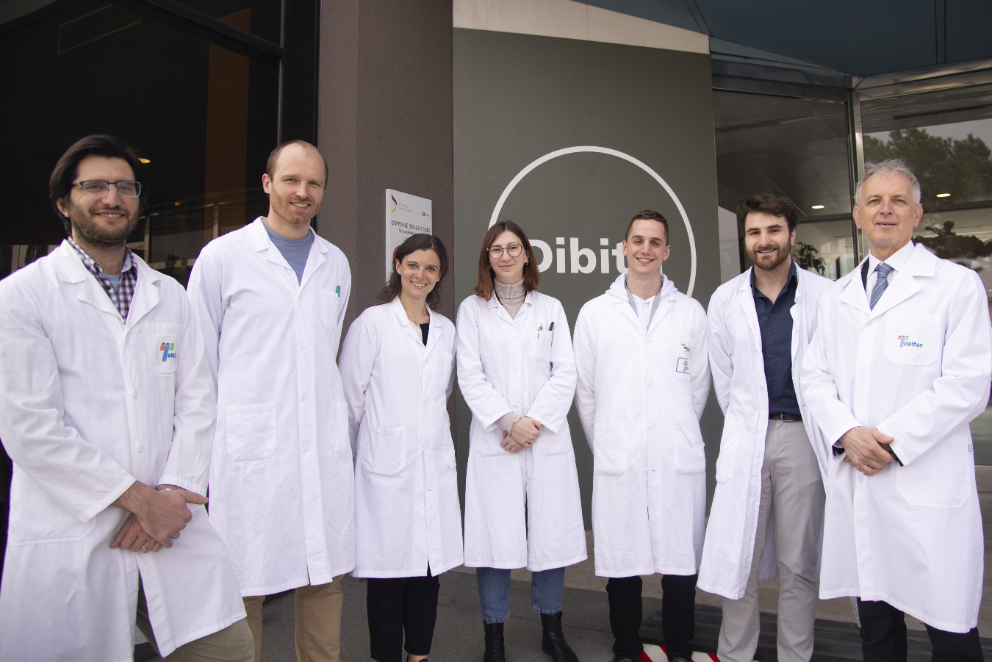
New gene therapy platform for engineering liver immune cells against hepatic metastases
Researchers at San Raffaele in Milan demonstrated, in an experimental study, the effectiveness of a new gene therapy platform for engineering liver immune cells against hepatic metastases.
During the course of tumor progression, cancer cells can colonize other organs, including the liver, giving rise to hepatic metastases. These are characterized by a modest response to current pharmacological therapies, including the latest immunotherapy. Resistance to pharmacological therapies in hepatic metastases is associated with the limited activation of immune cells present in the liver.
A group of researchers from the San Raffaele-Telethon Institute for Gene Therapy (SR-Tiget) has developed, in experimental models, a new gene therapy strategy capable of in vivo engineering certain liver immune cells (hepatic macrophages or Kupffer cells) with the aim of reactivating their immune responses. The researchers succeeded in preventing systemic toxicity and modulating the tumor microenvironment from immunosuppressive to activating the anti-tumor response, thus obtaining an inhibition of metastasis growth.
The results, published in the prestigious journal Cancer Cell, are the result of a study coordinated by Professor Luigi Naldini, director of the San Raffaele Telethon Institute for Gene Therapy (SR-Tiget) and professor at the Vita-Salute San Raffaele University, and Mario Leonardo Squadrito, project leader of the Targeted Cancer Gene Therapy Unit. The data now published lay the foundation for future clinical development of a new gene therapy strategy for patients with liver metastases.
The first authors are Thomas Kerzel and Giovanna Giacca, who participated in the study for the PhD. The research was mainly supported by the "5 per mille" program of the AIRC Foundation for Cancer Research and the Regional Foundation for Biomedical Research.
The Hepatic Metastases
The presence of hepatic metastases of gastrointestinal tumors, such as colorectal cancer and ductal adenocarcinoma of the pancreas, is a negative prognostic factor. Despite advances in pharmacological treatments, including immunotherapeutic approaches and those aimed at cancer, the most effective therapeutic option remains surgical resection, which is not applicable to all patients and often achieves partial success.
The high incidence of hepatic metastases is partly attributed to the immunosuppressive tumor microenvironment of this organ, which inhibits protective immune responses and activates a series of pro-tumoral mechanisms.
For some years, we have been focusing on the use of gene therapy techniques in oncology, and this study is a new example of our commitment. Our goal is to respond to the unmet needs of those patients suffering from liver metastases now inoperable for which curative treatments are not currently available
- explains Professor Luigi Naldini.
The Use of Gene Therapy for Liver Metastases
Researchers at San Raffaele have developed a new gene therapy platform based on lentiviral vectors that allows for the selective engineering of liver macrophages. Macrophages play an important role in regulating immune responses. On one hand, they help defend us against infections, on the other hand, when they are attracted a tumor, they can suppress other immune cells and promote neoplastic growth.
With this new platform, we can administer vectors directly in vivo—with a single intravenous infusion—that selectively reach liver macrophages, especially those attracted to metastases
- explains Mario Leonardo Squadrito
Genetically modified macrophages release immunostimulatory molecules, in particular interferon type I (IFNα). IFNα plays an important role in awakening our body's defense system by stimulating T lymphocytes (which recognize and kill cancer cells).
With our approach, we can reprogram the tumor microenvironment towards immune activation. However, we have observed that some mechanisms in the liver (which we recall tends to suppress immune responses) also create resistance even to IFNα itself. We have therefore combined the release of IFNα with an immunotherapy already used for other tumors, based on blocking inhibitory receptors on lymphocytes: this combination has allowed us to further strengthen the immune response against metastases
- explains Squadrito
Thanks to a more permissive microenvironment established following the engineering of macrophages, immunotherapy has demonstrated high therapeutic success in mice with liver metastases from colorectal and pancreatic cancer.
Future developments
Although the study presented so far is limited to laboratory experimental studies, many of the results obtained by San Raffaele researchers show clinical correlations supporting its relevance.
Overall, these results lay the foundation for the clinical development of a new gene therapy strategy for patients with liver metastases. Further studies are now needed to determine safety and compatibility for use in humans
- concludes Naldini
You might be interested in
/resolutions/res-c660x528/Pensa_Aorta_Congresso_UniSR-(3).png)
UniSR hosts the launch of the “Pensa all'Aorta” campaign

UniSR PhD Courses 2025-2026
0/resolutions/res-c660x528/Cassandra_studio_pazienti_pancreas_UniSR-(1)0.png)
Pancreatic Cancer: New Treatment Guidelines Arising from a Patient-Funded Study
/resolutions/res-c660x528/Milani_terapia_genica_UniSR-(1).png)
